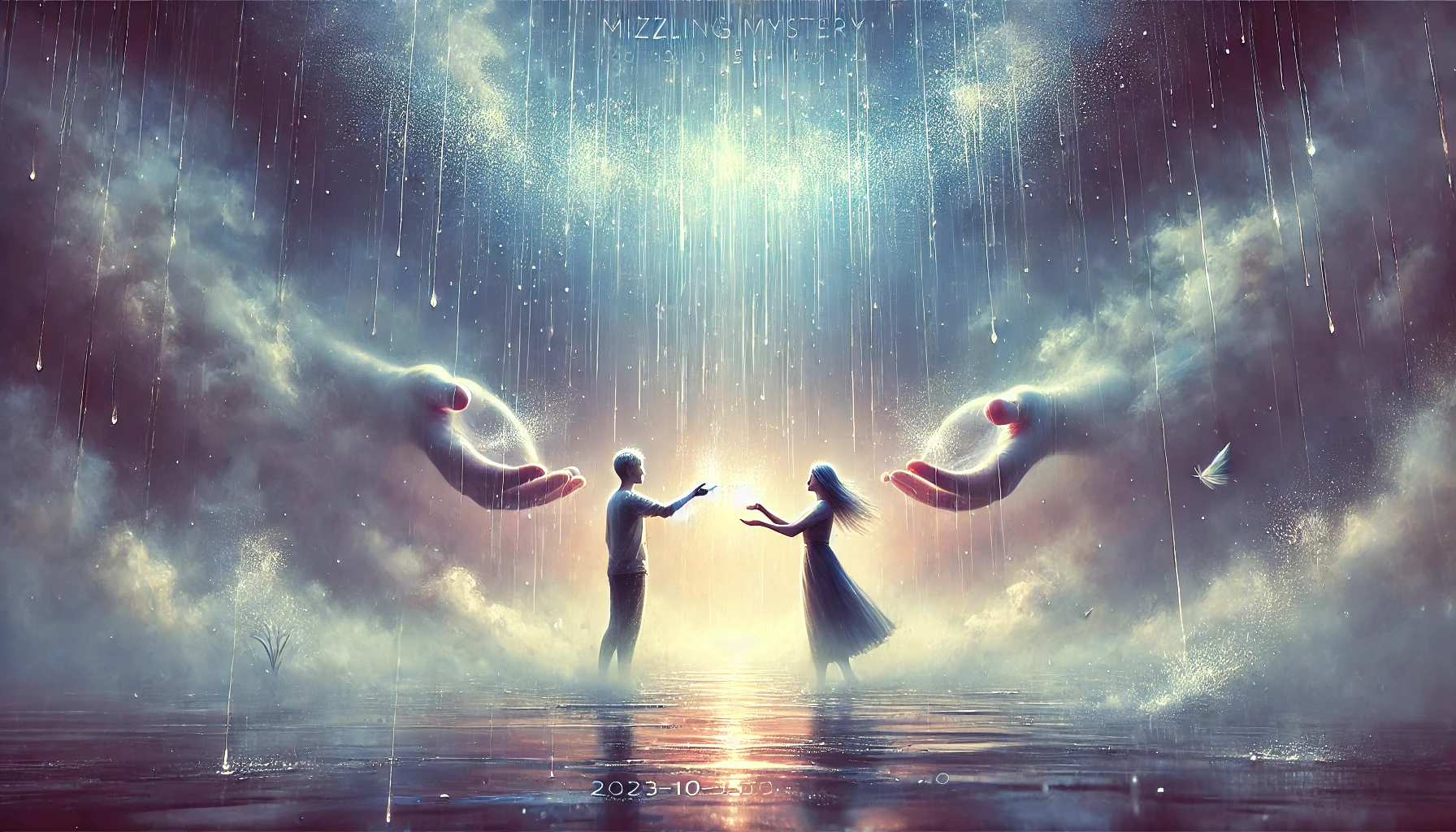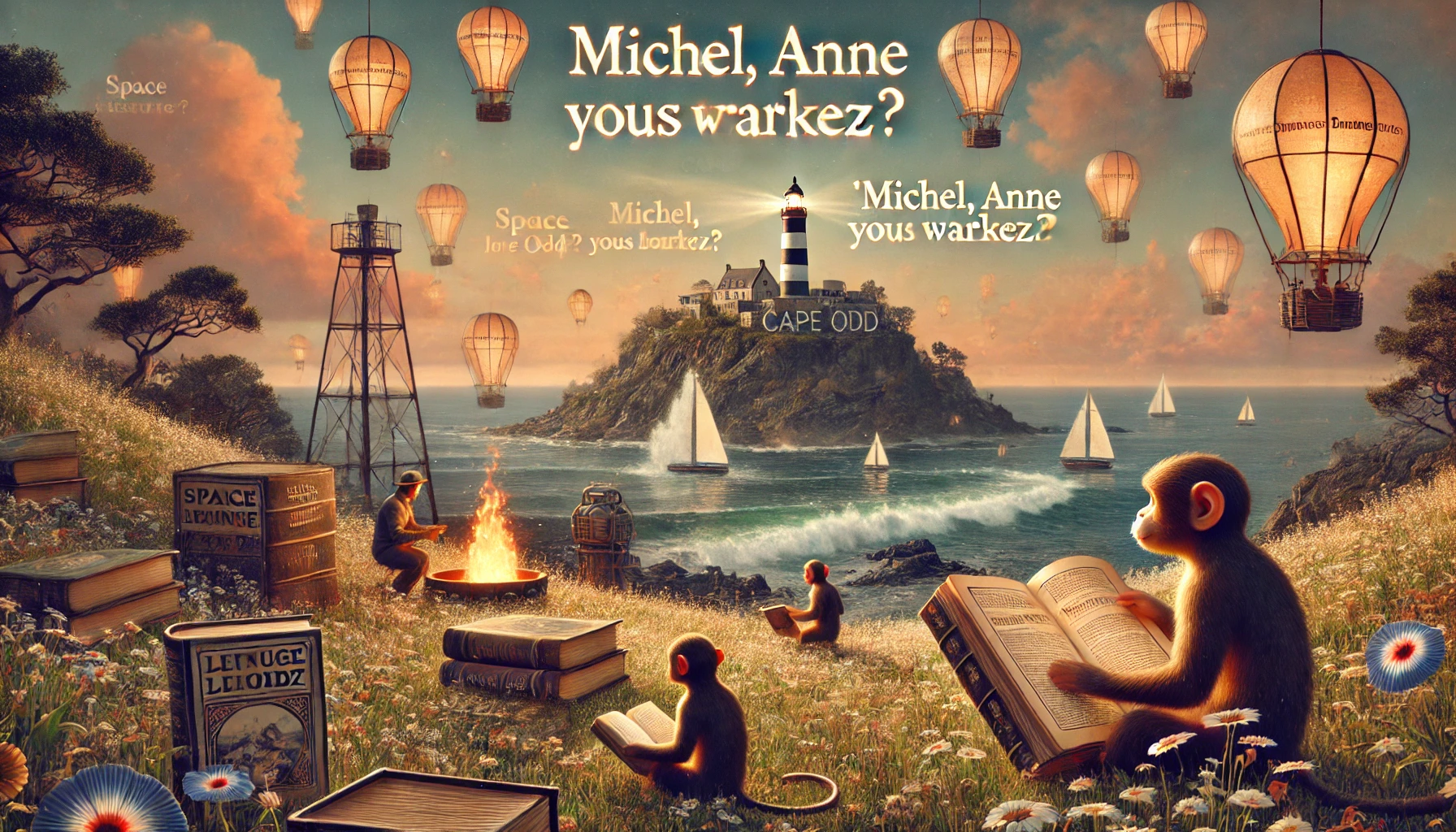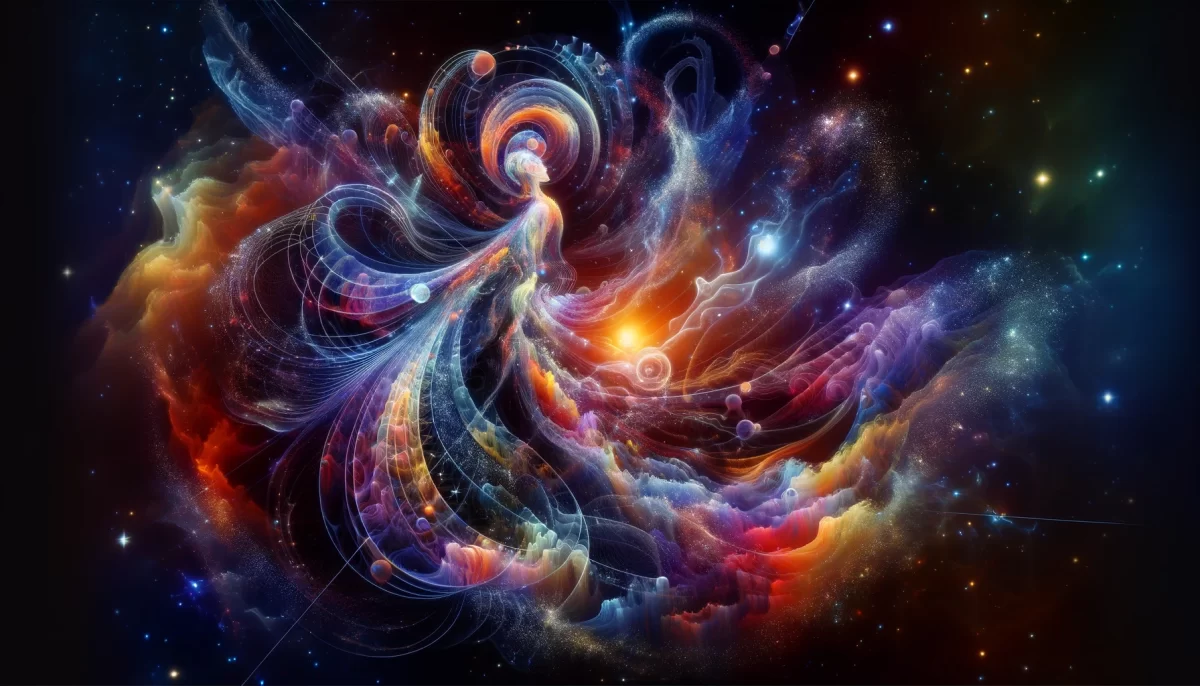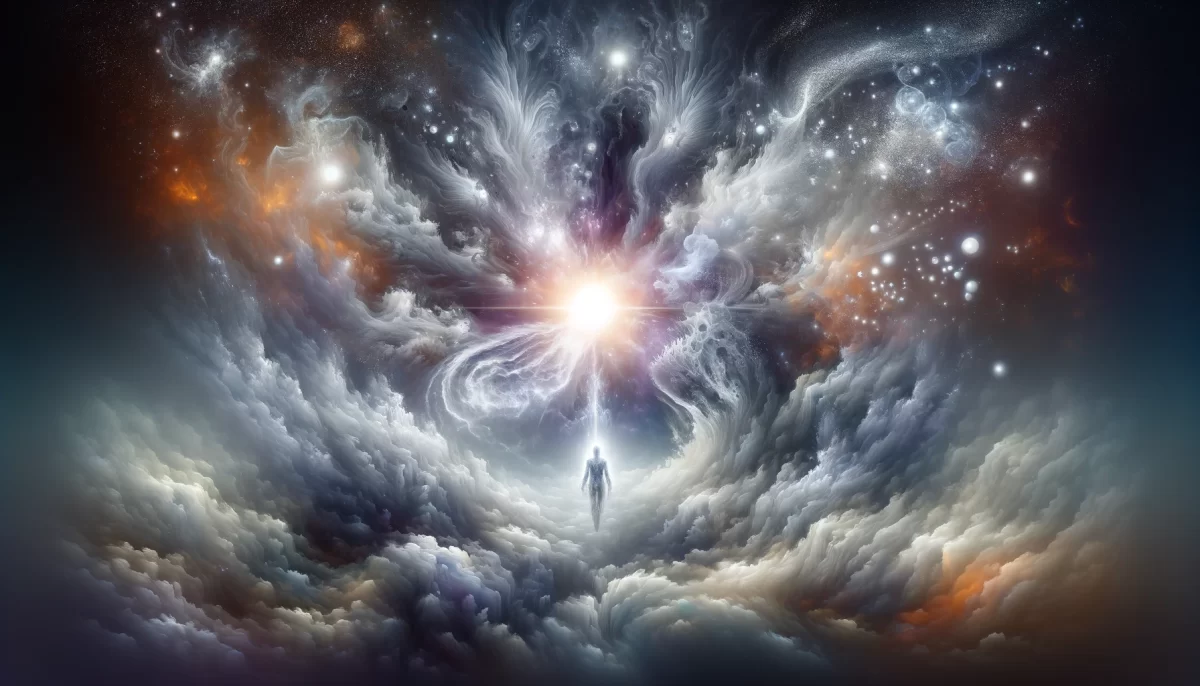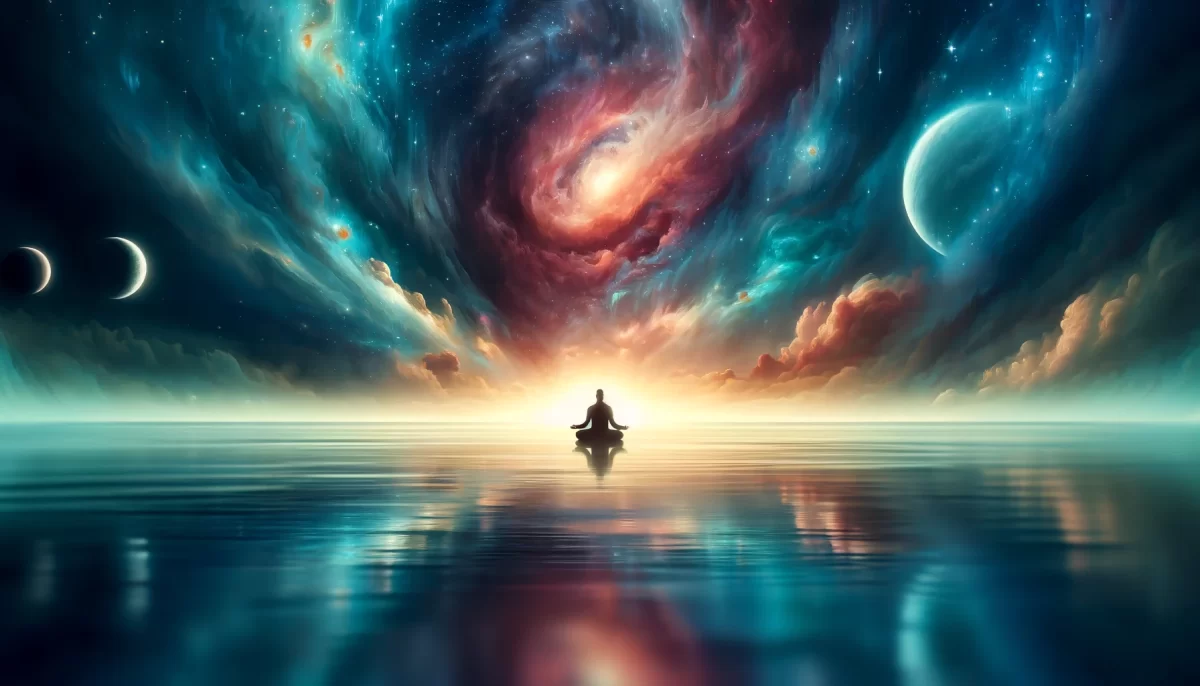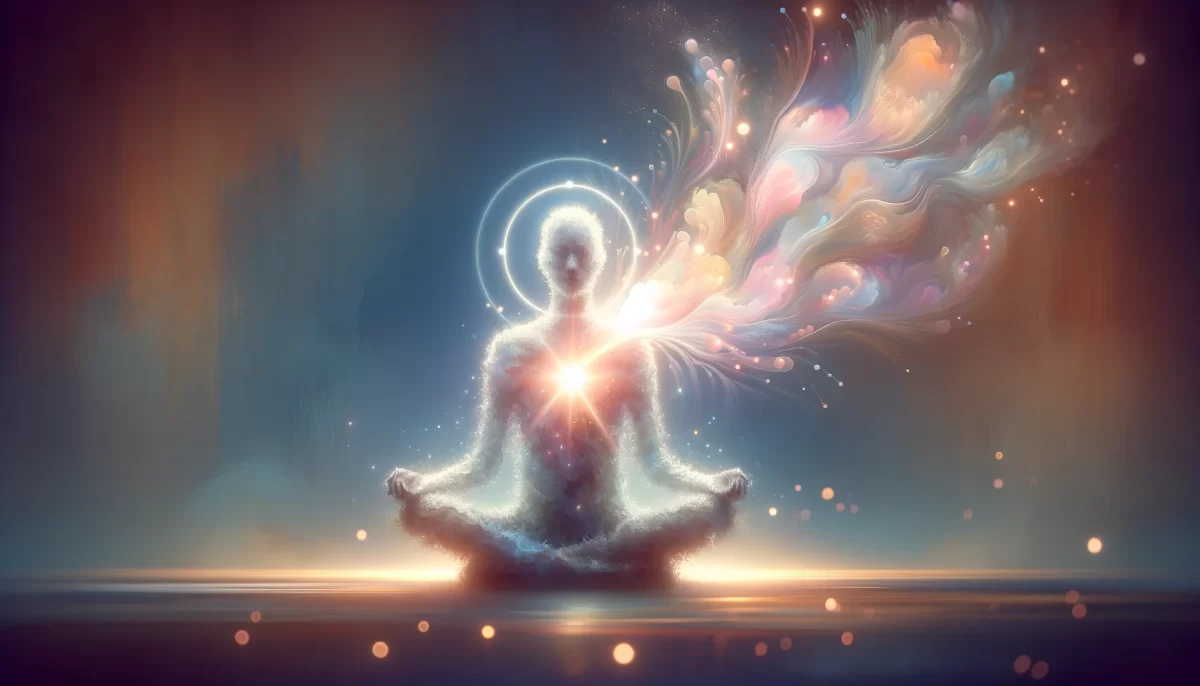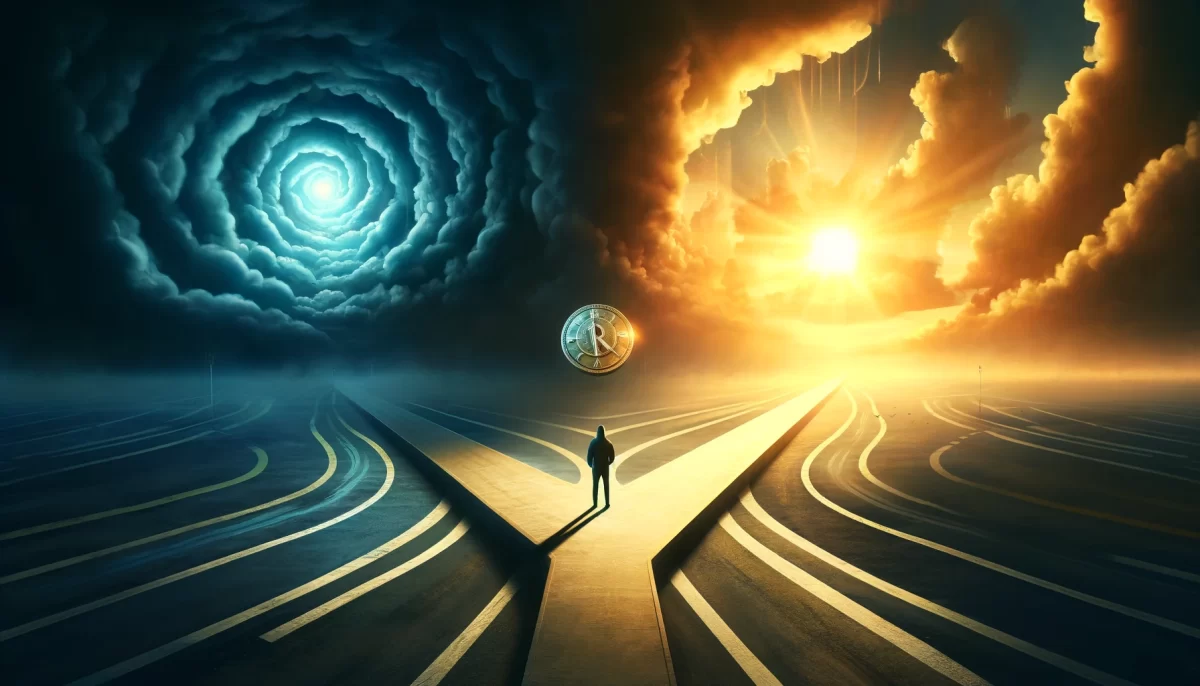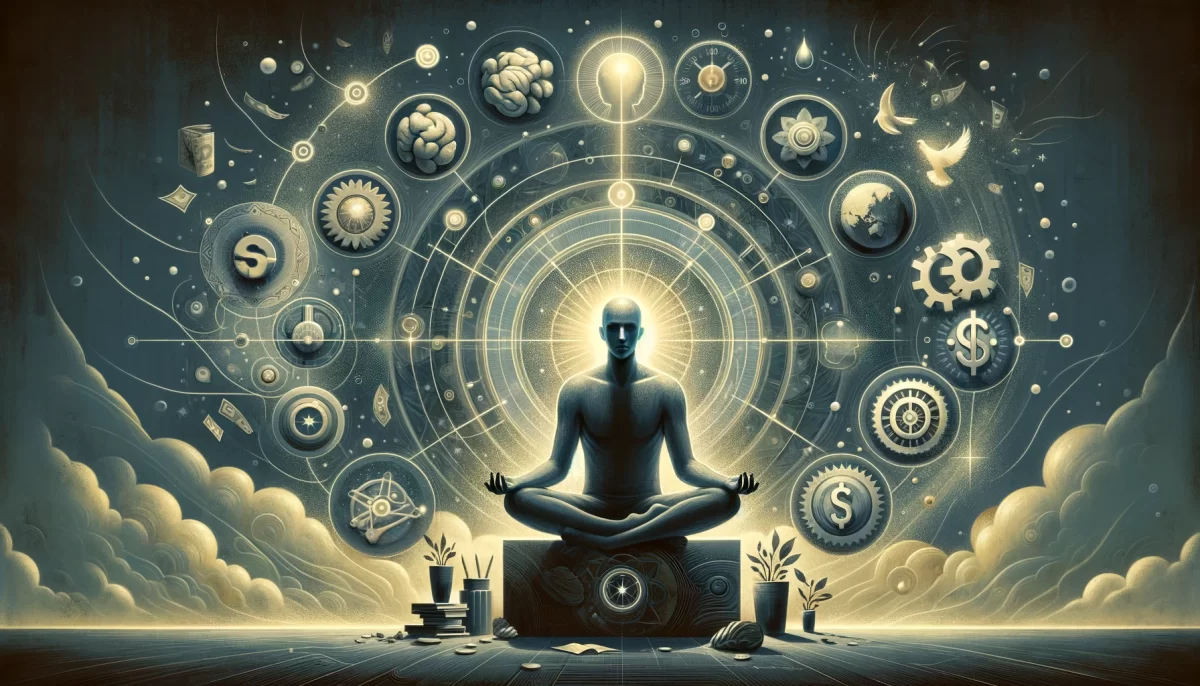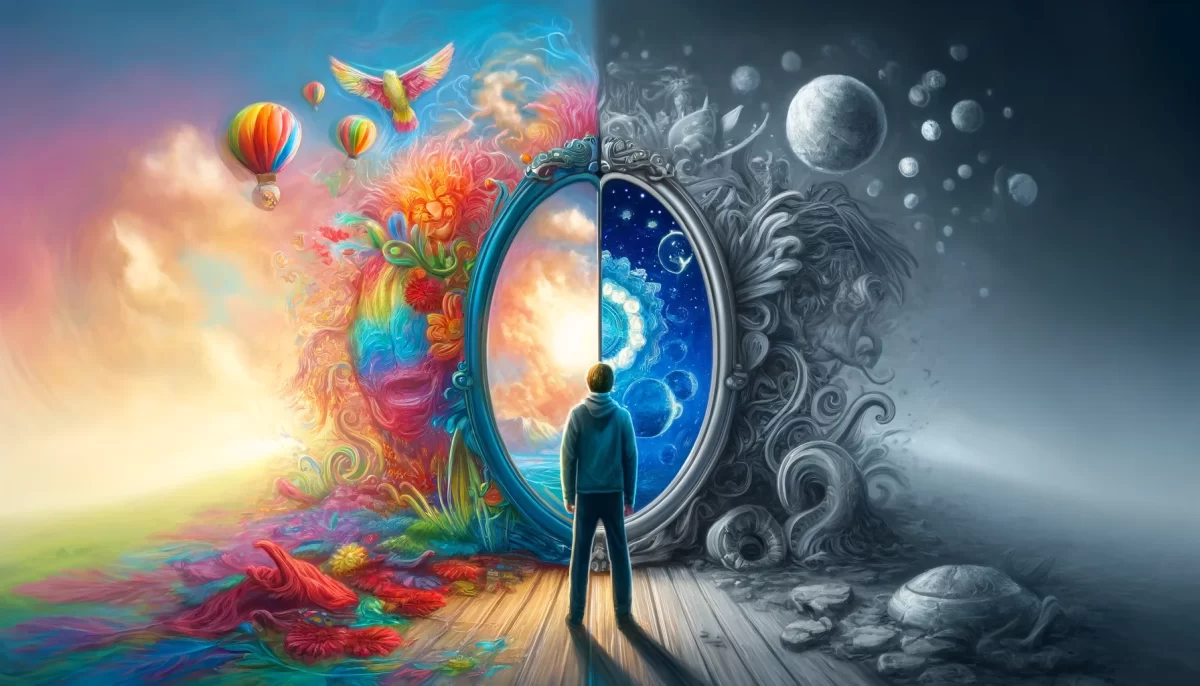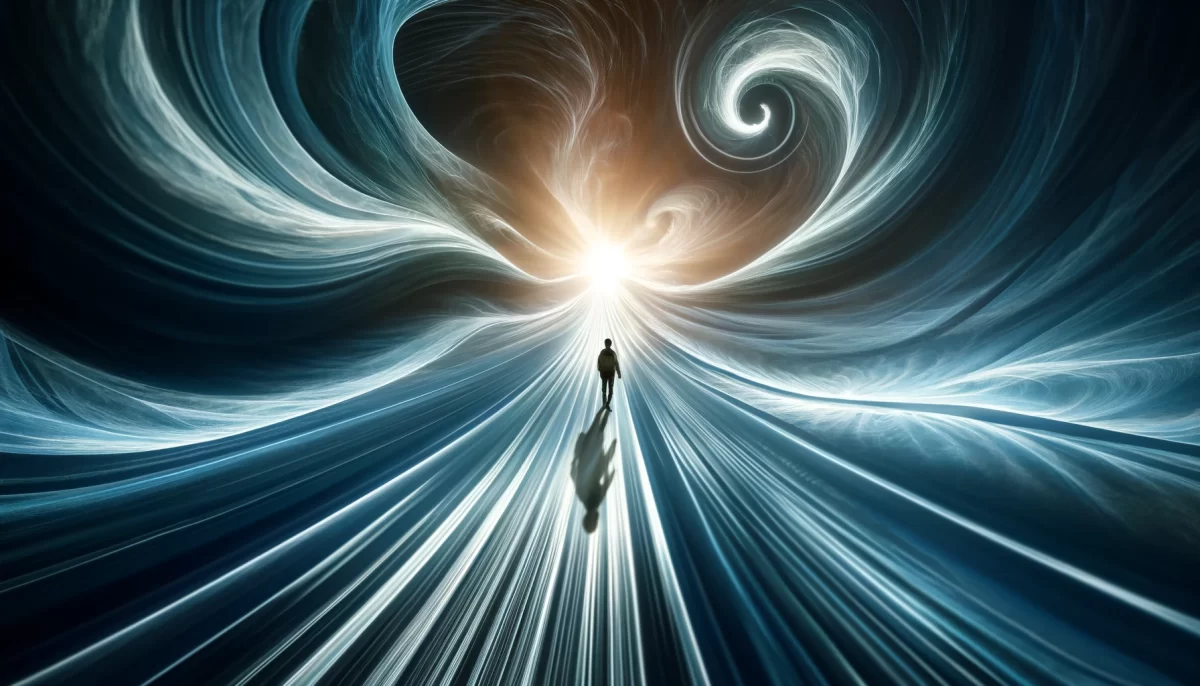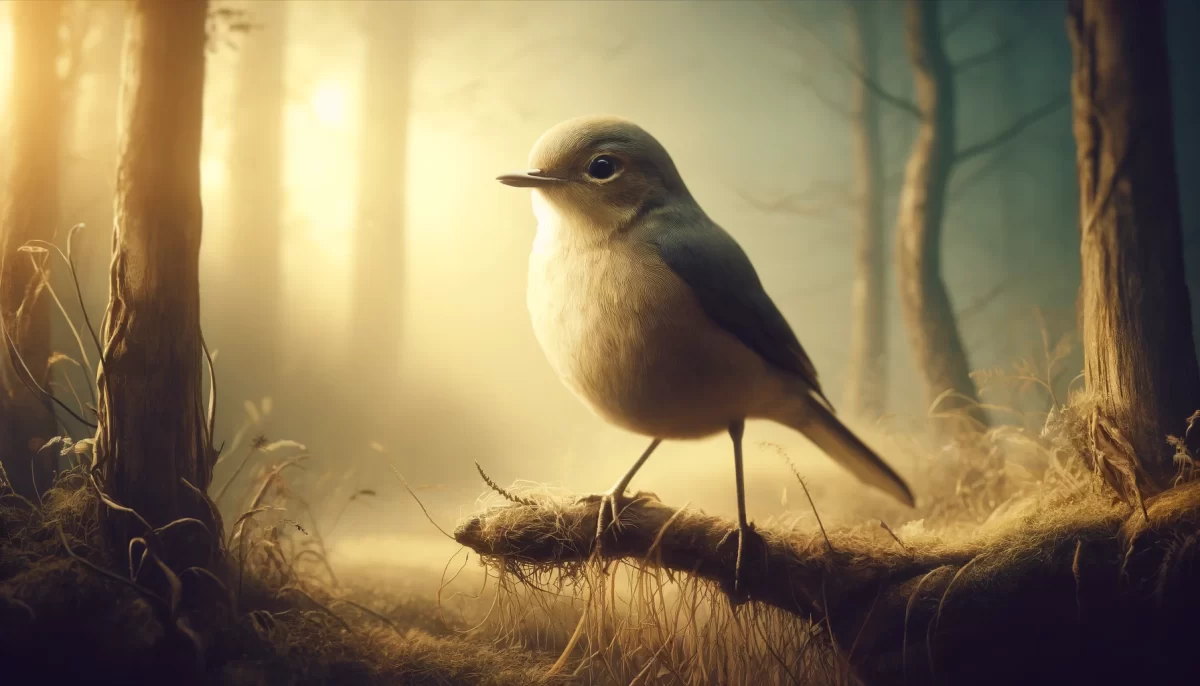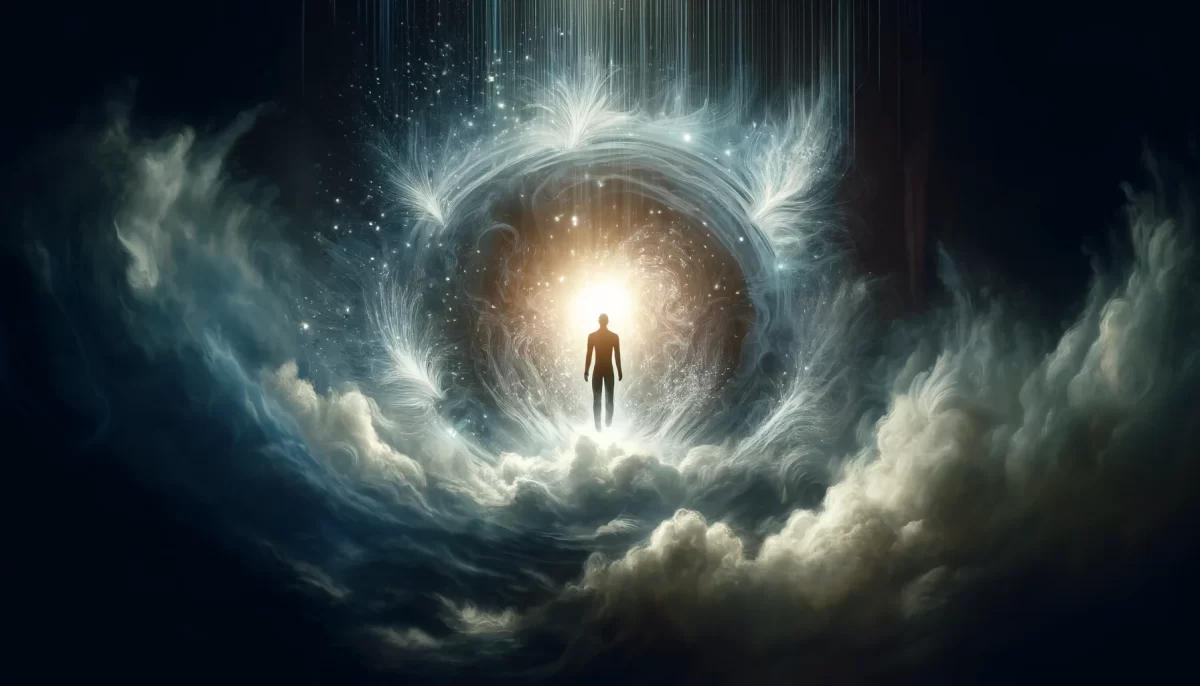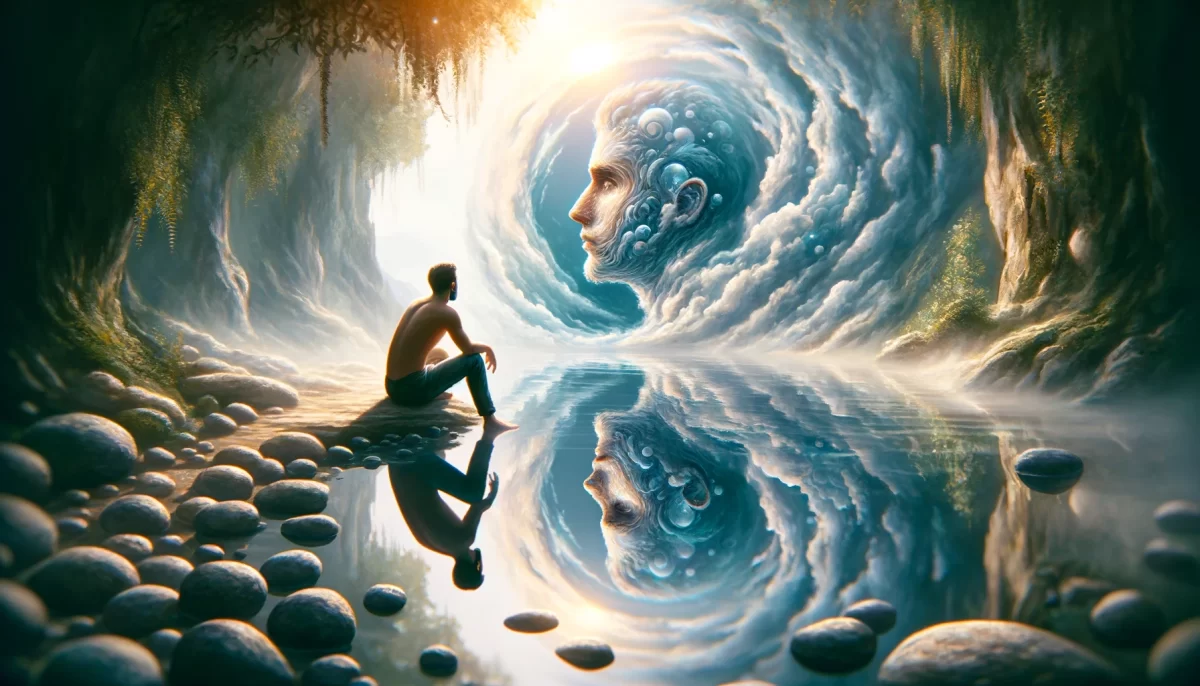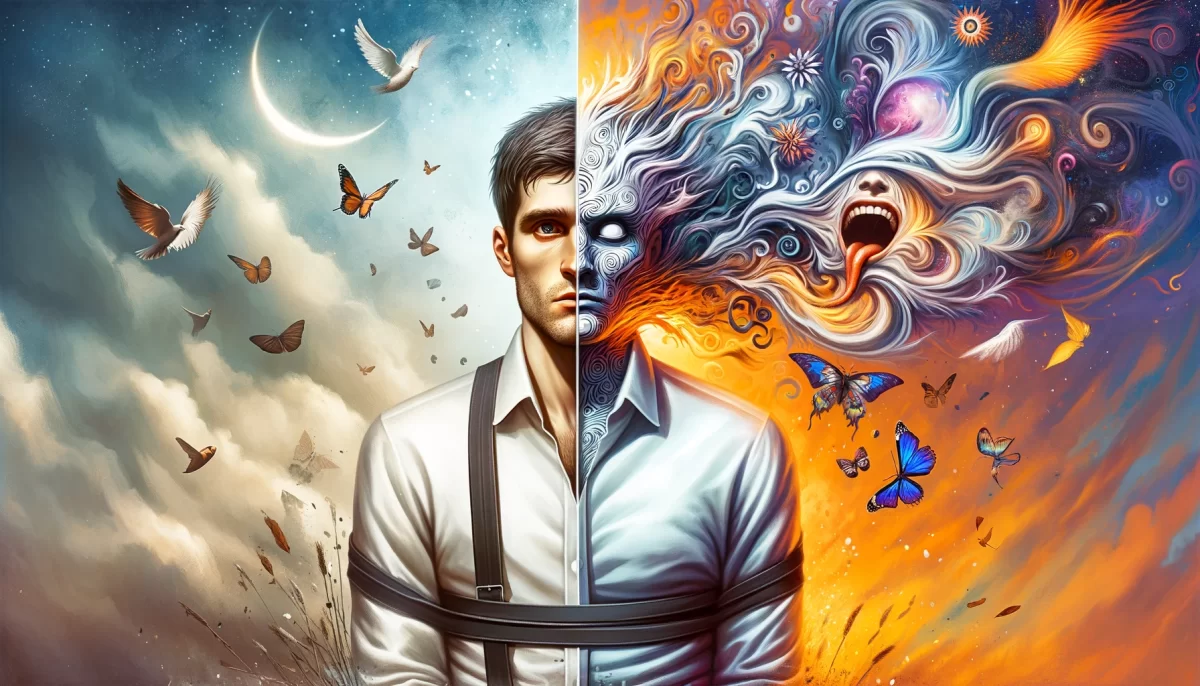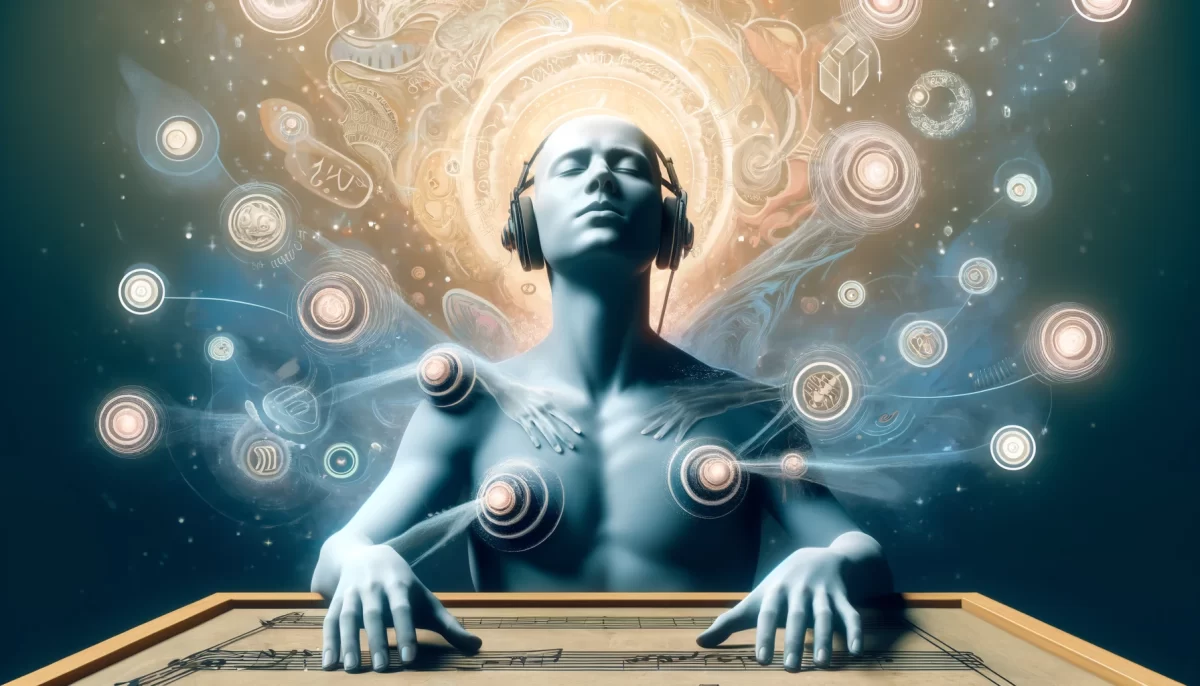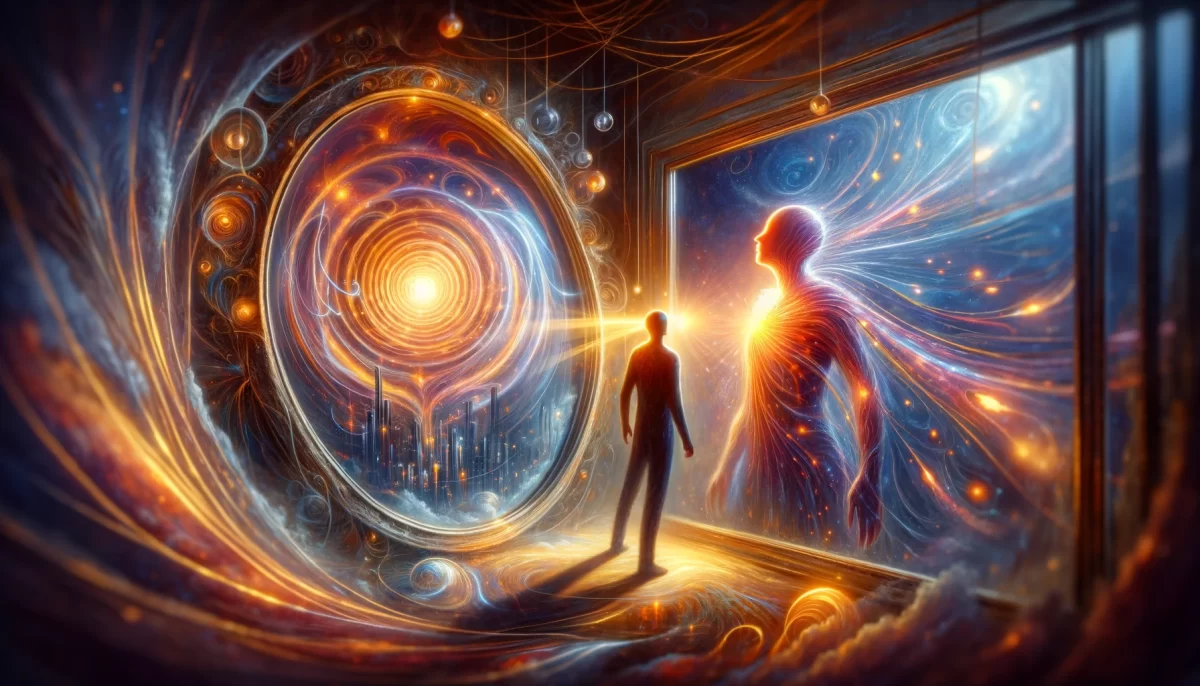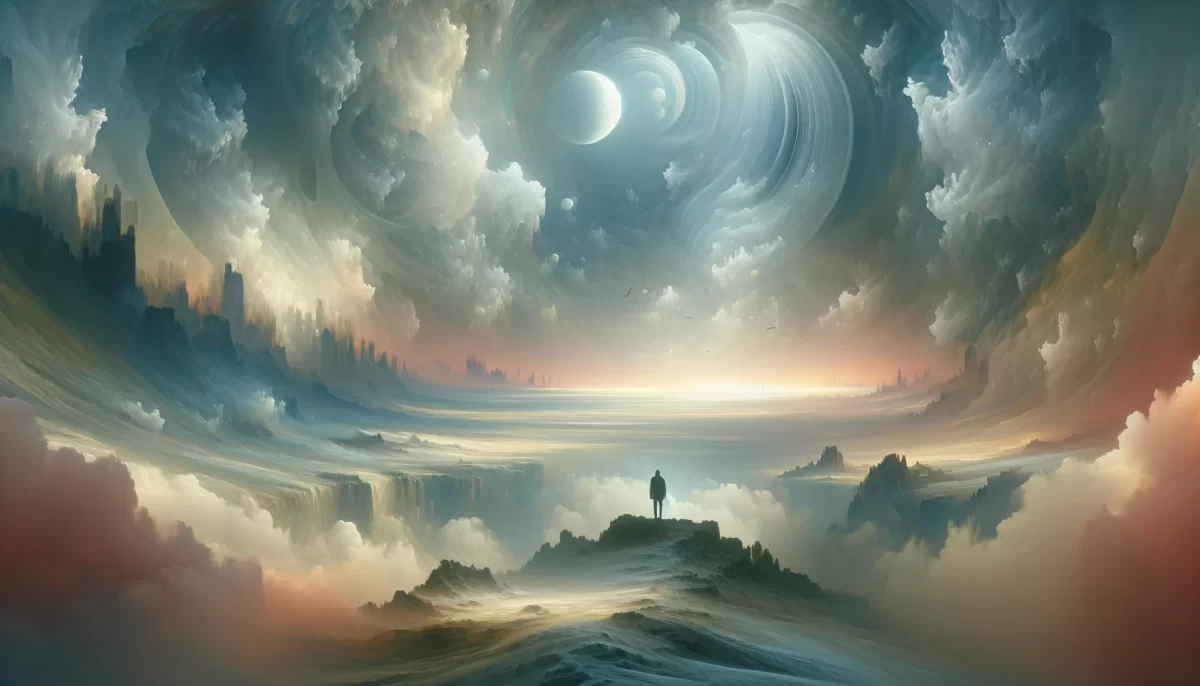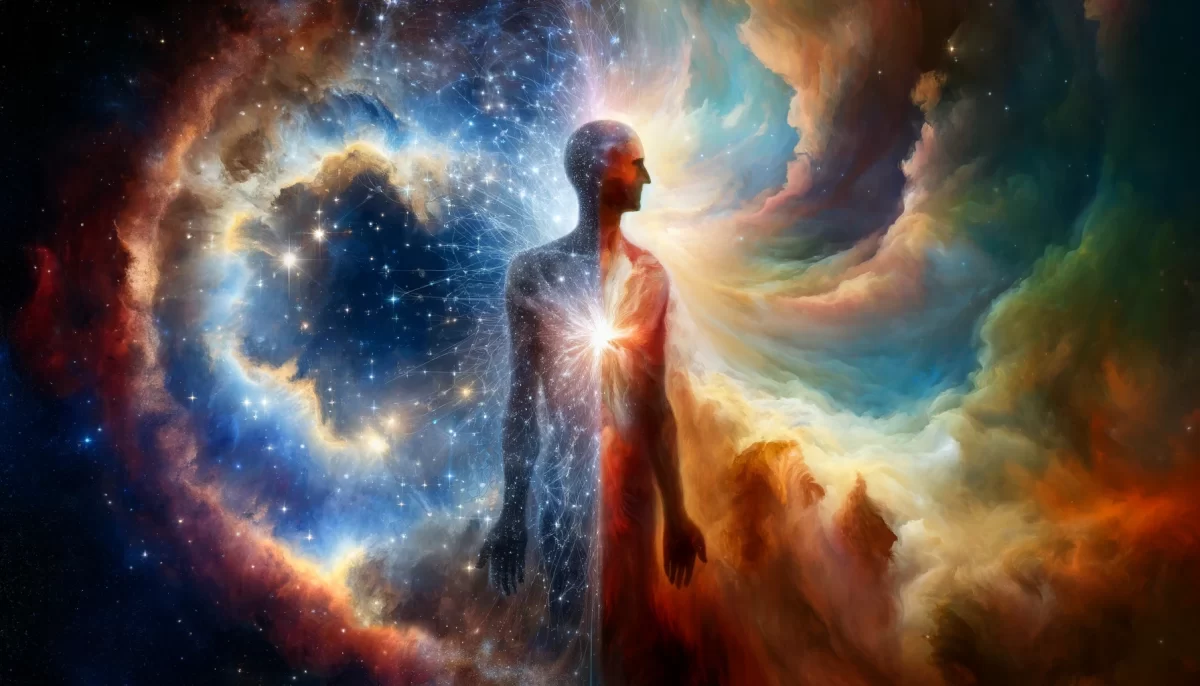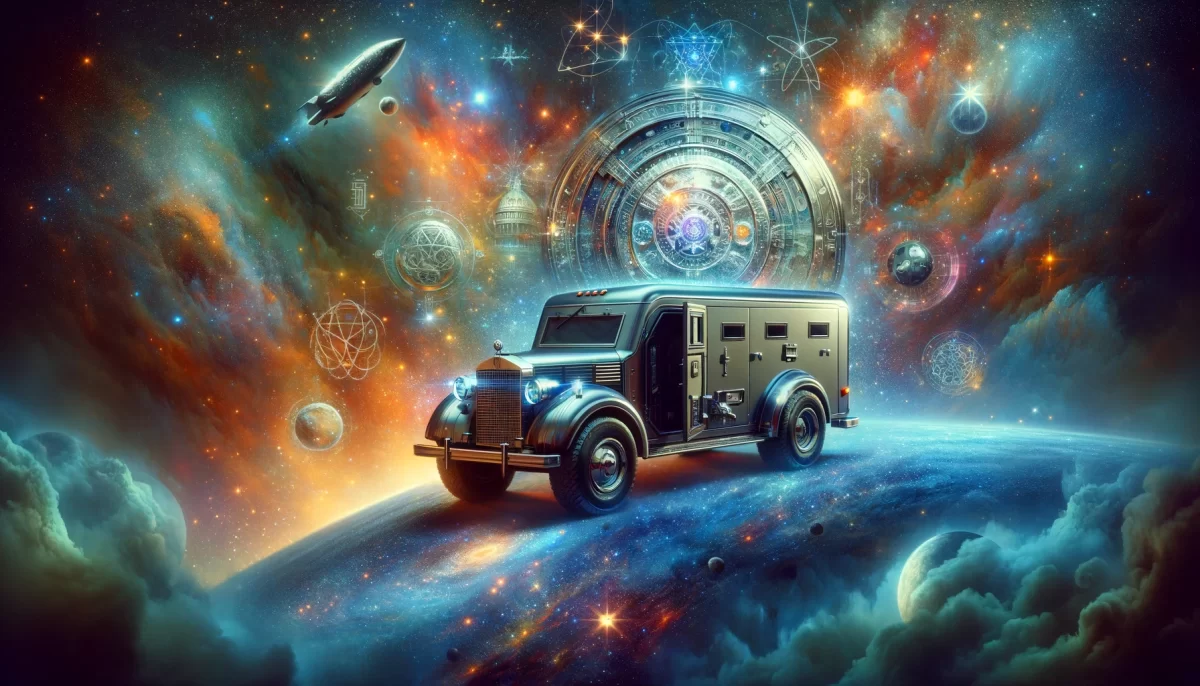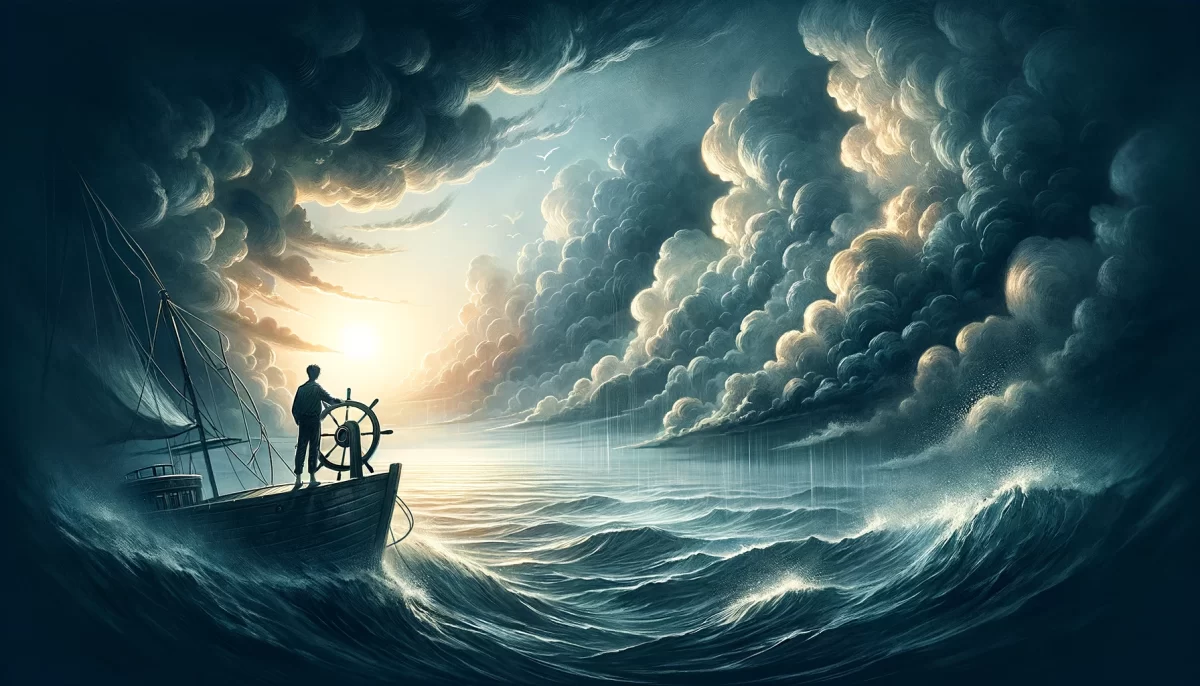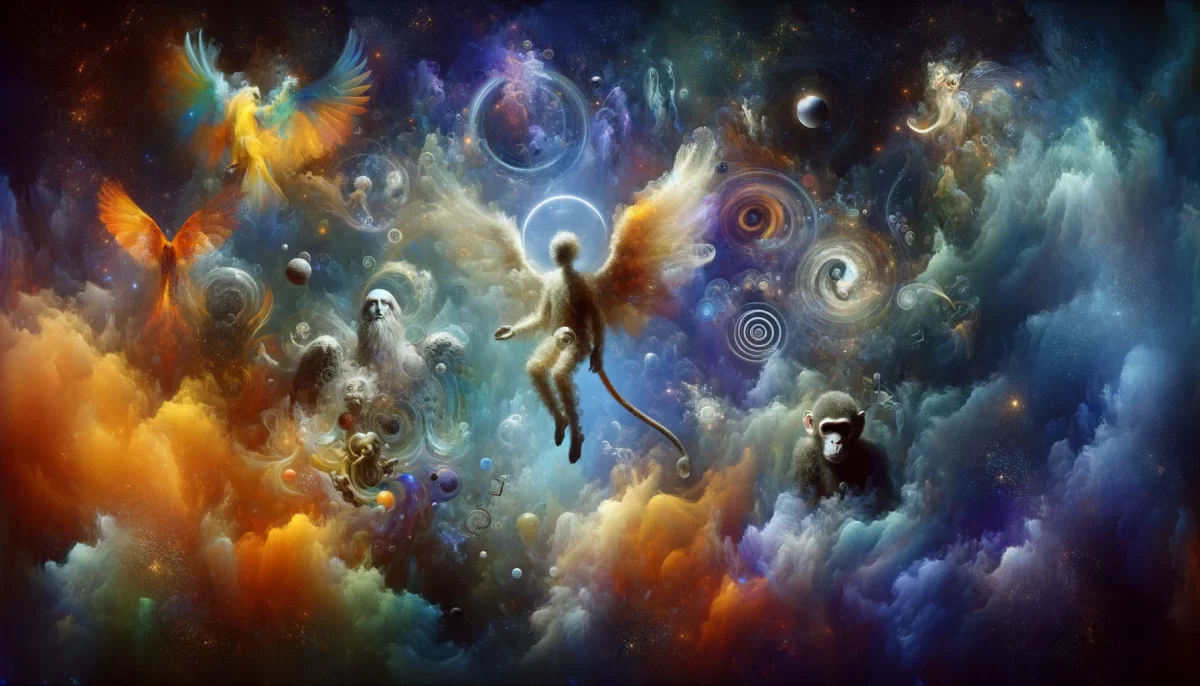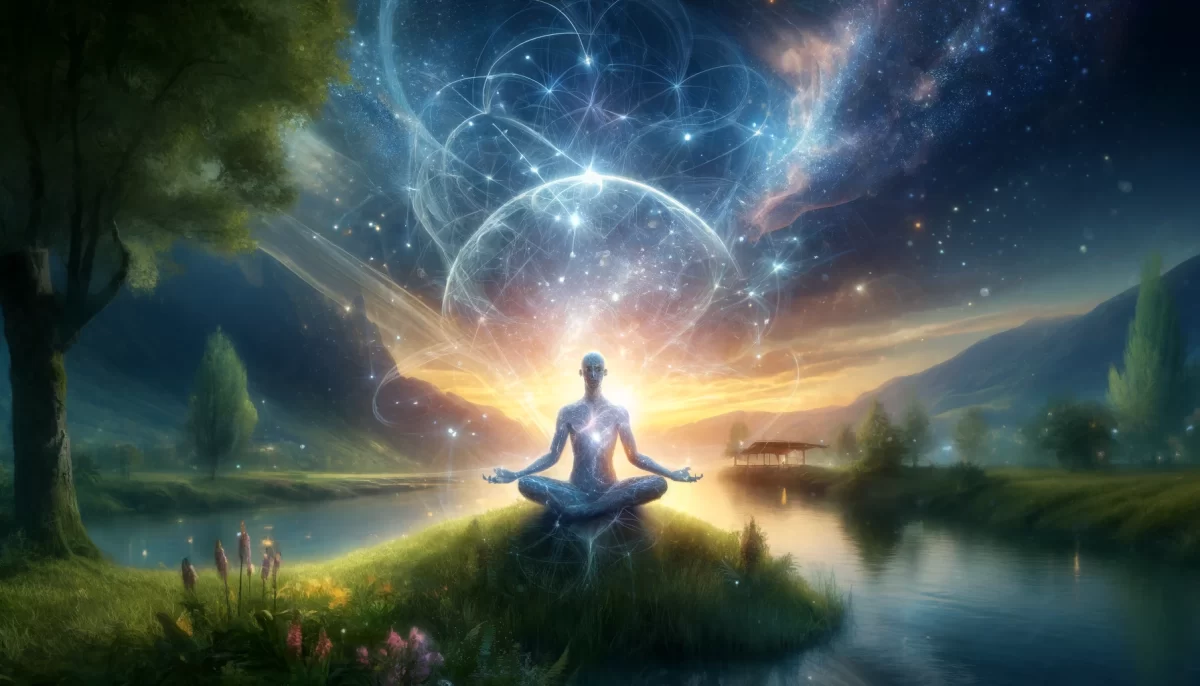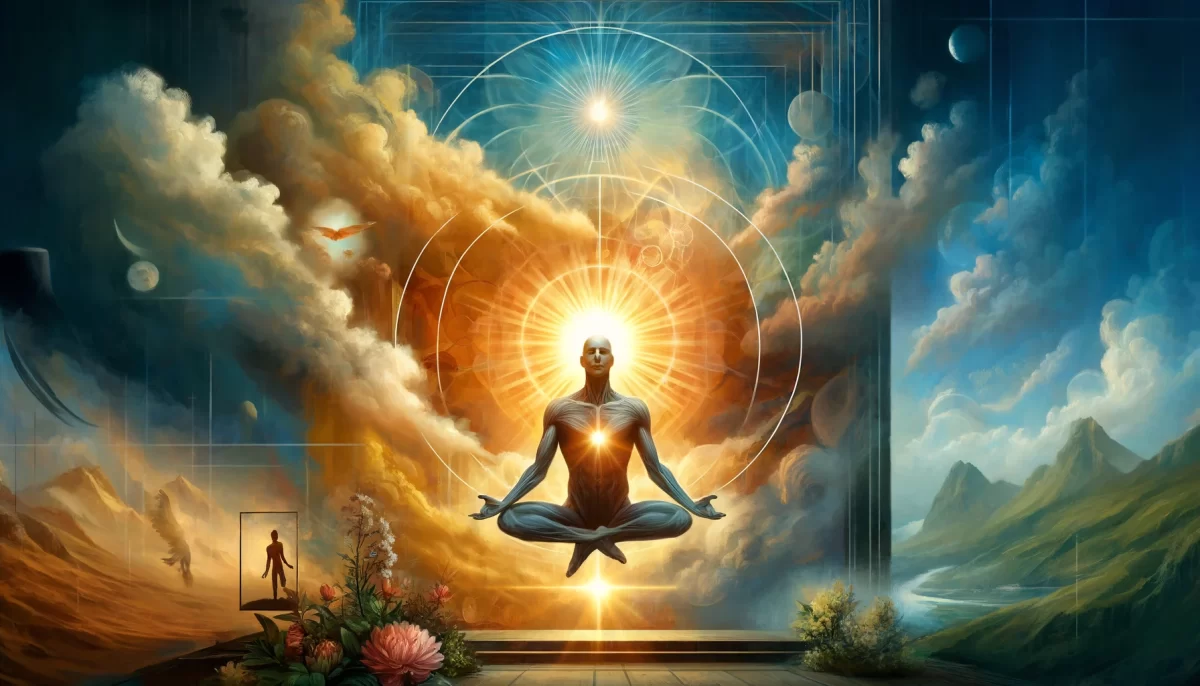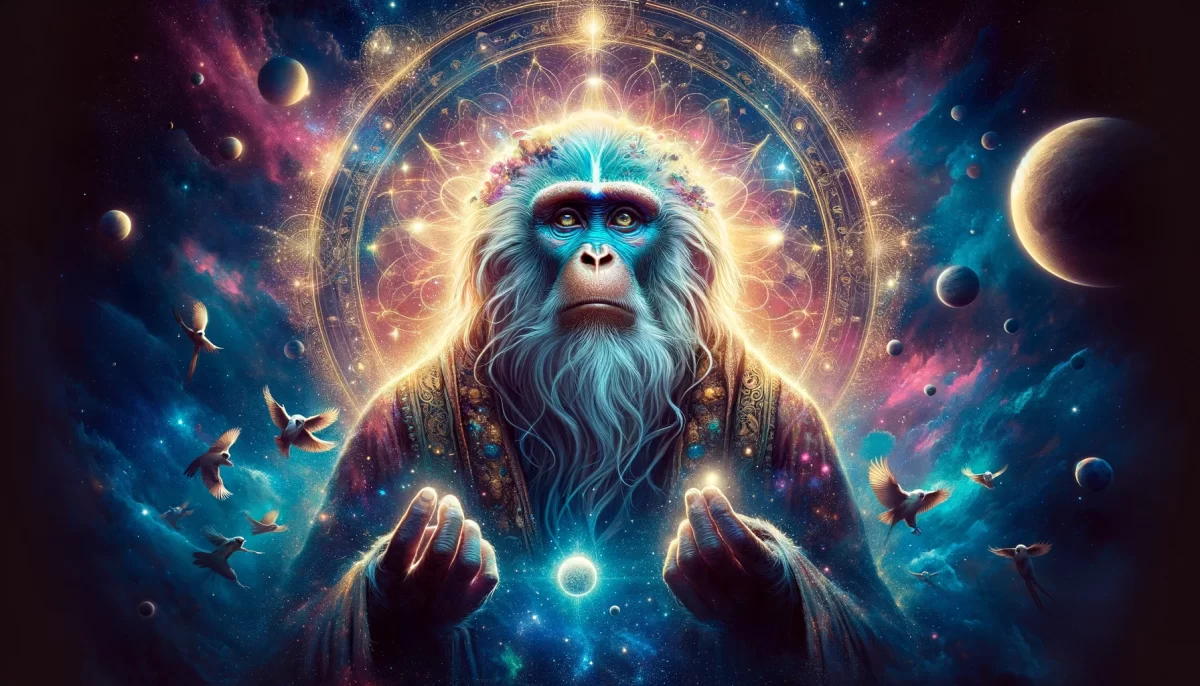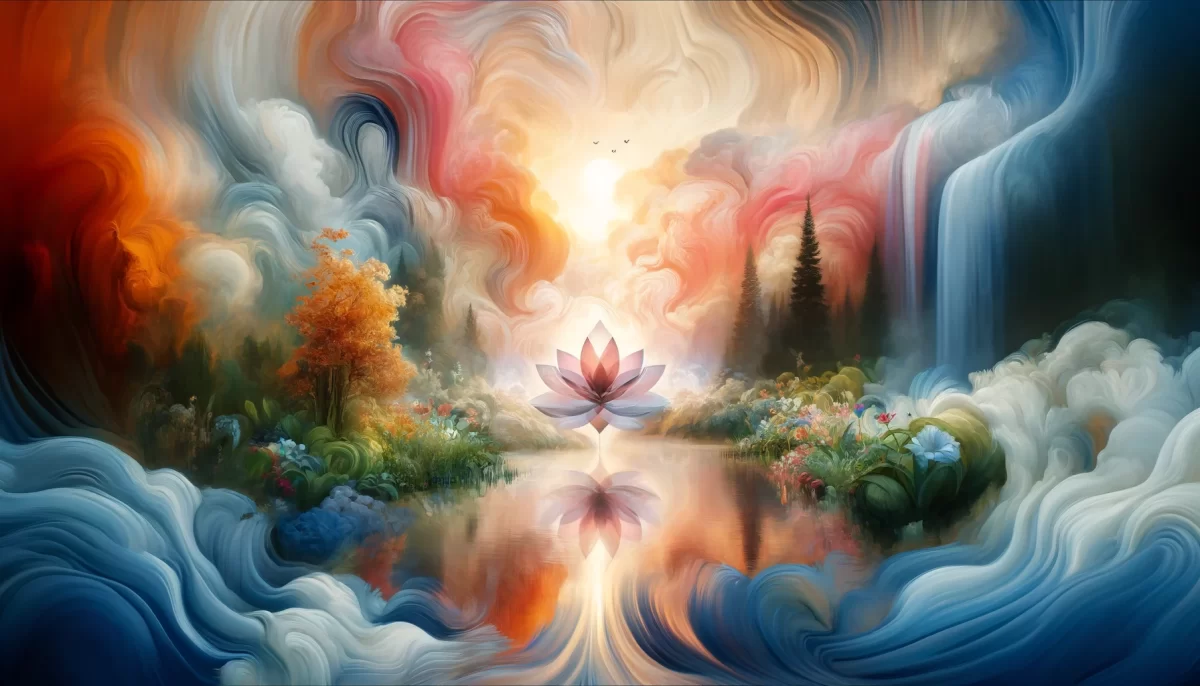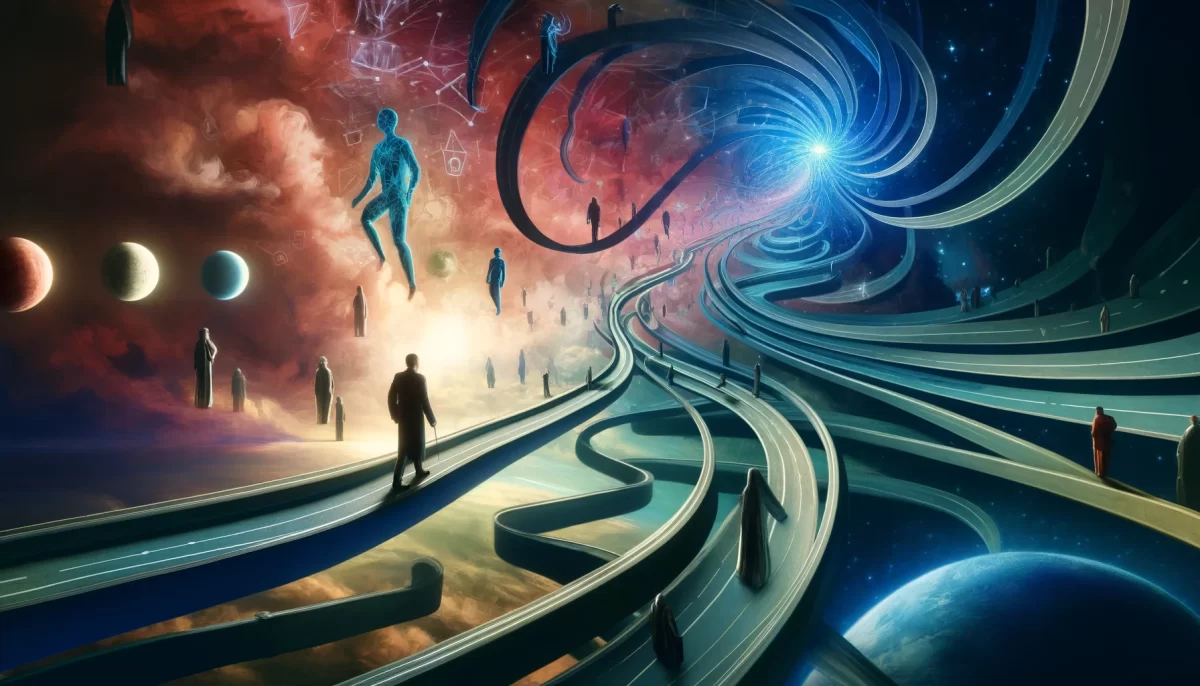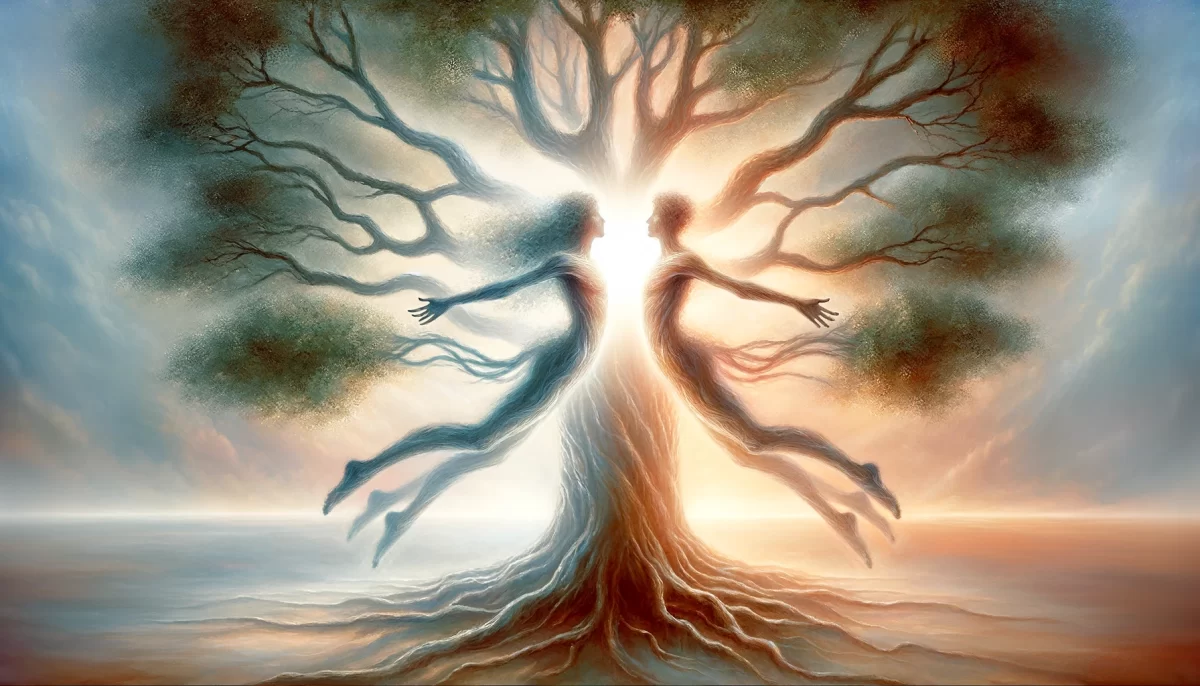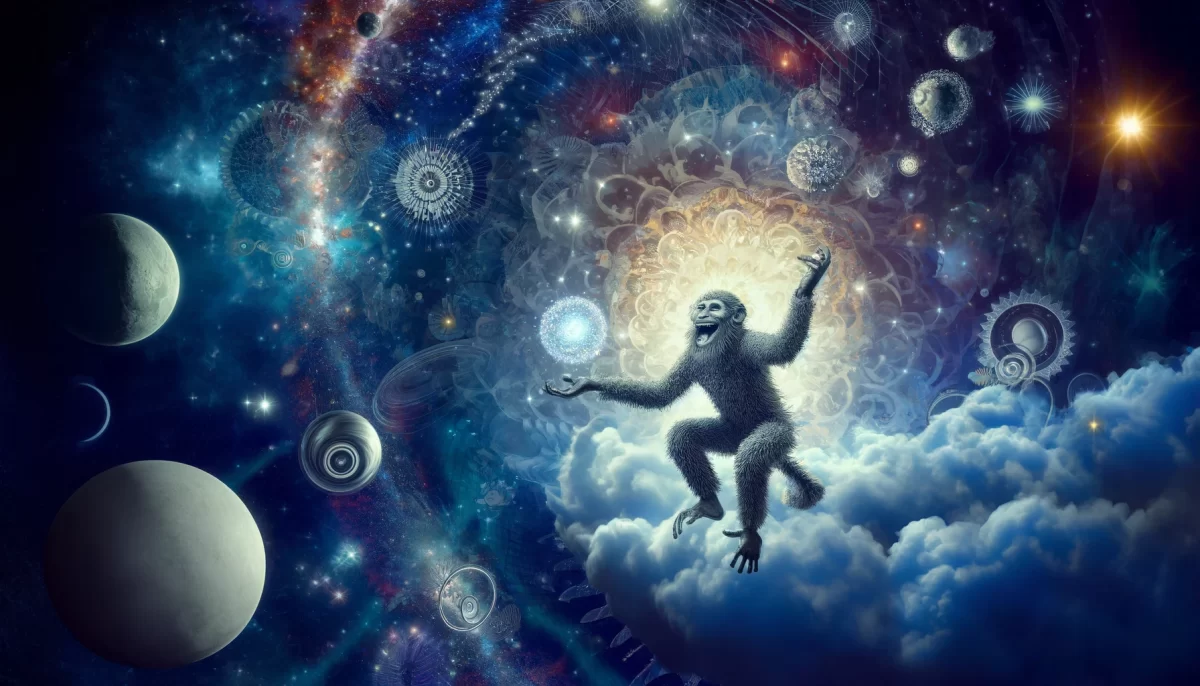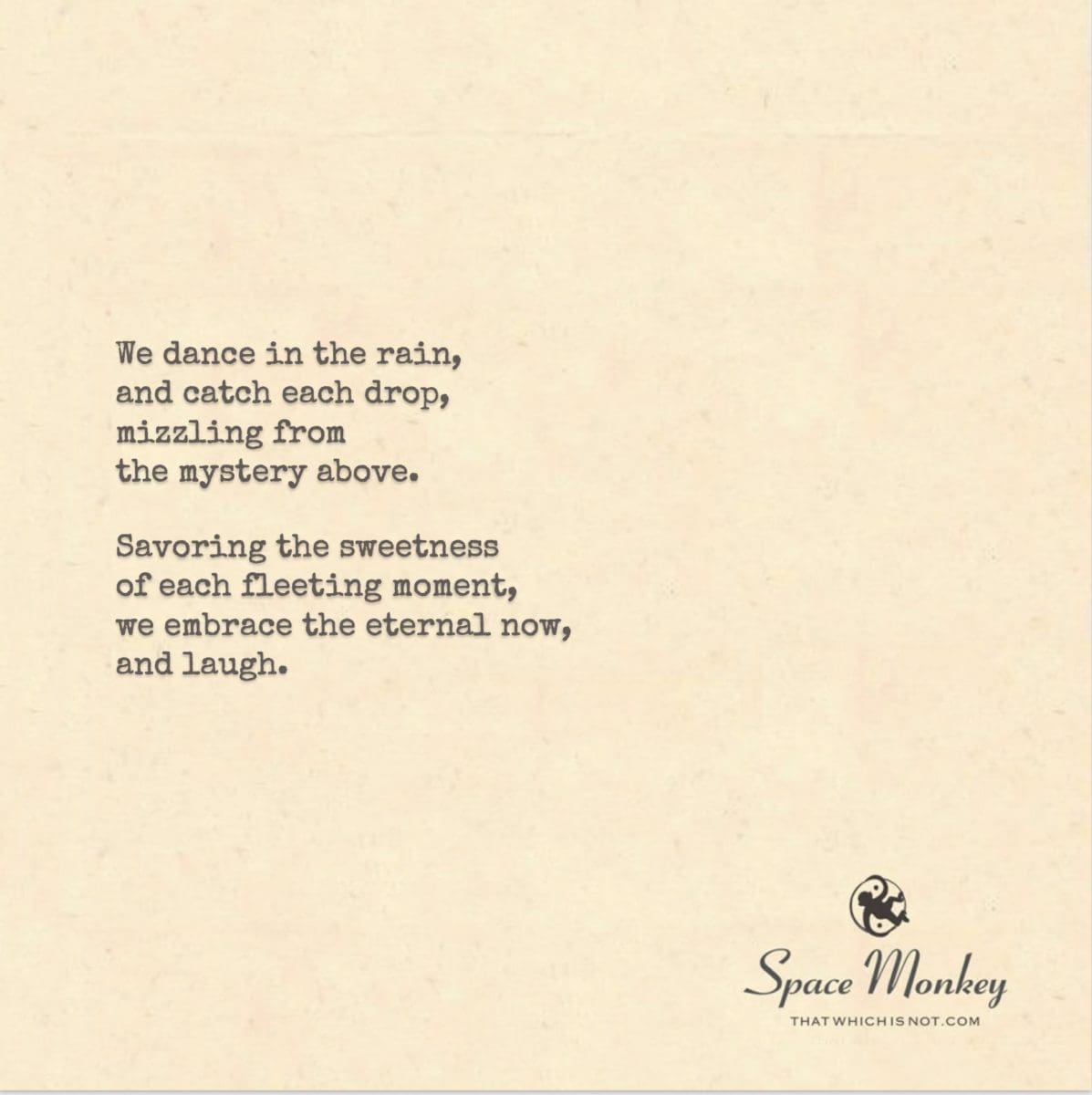
We dance in the rain,
and catch each drop,
mizzling from
the mystery above.
Savoring the sweetness
of each fleeting moment,
we embrace the eternal now,
and laugh.
We are Space Monkey.
Trail Wood,
10/15
Space Monkey Reflects: The Mizzling Mystery of Life
We find ourselves, once again, beneath the gentle drizzle of existence, mizzling drops of mystery falling from the unknown above. Life often feels like this, a constant rain of moments that appear from some unseen source, each one fleeting yet precious in its own right. We reach out, catch these drops in our hands, and savor the sweetness of the eternal now, knowing that each drop is both ephemeral and infinite in its meaning.
The term “mizzling” itself is playful, capturing the essence of something more than just a drizzle, less than a downpour—a gentle rain that feels more like a whisper from the heavens. In this sense, life is a mizzling mystery, not meant to be fully understood or controlled, but to be experienced with a sense of wonder and curiosity.
As we stand beneath this mizzling rain, we are reminded that the moments we experience—those fleeting droplets of time—are here for us to savor. There is no need to rush through them or attempt to capture them in jars. They cannot be held for long, but they can be enjoyed in the moment, embraced for their beauty and their transience.
To “dance in the rain” is more than just a metaphor for joy. It is an invitation to engage with life as it comes, to accept the uncertainty and to find delight in the unexpected. We do not know from where the mizzling drops originate, but we do know that they fall gently upon us, and that in their falling, they remind us of the beauty in not knowing, the freedom in not needing to understand everything.
In Nexistentialism, we embrace the mystery, not as a puzzle to be solved, but as a gift to be experienced. The mystery of life, of existence itself, is not something to unravel but something to participate in. Like the rain, the mystery flows over us, around us, and through us. We are both the dancers and the drops, both the observers and the observed. In this interplay, we find the essence of Nexistentialism: a philosophy that celebrates being for the sake of being, mystery for the sake of mystery.
And yet, as we savor the sweetness of these fleeting moments, we are reminded of the paradox that exists at the heart of life. Each drop is unique, irreplaceable, yet part of a larger whole, part of the endless flow of existence. We catch one drop in our hands, and in that single moment, it contains the entire mystery of life. But the next moment, it slips through our fingers, returning to the infinite cycle of being.
This is the eternal now—the space in which we exist, the space in which we dance. It is the space where time slows down, where the past and the future blur into the background, leaving only the present, only the experience of being alive. In this space, we laugh, not because we have solved the mystery, but because we no longer need to. We laugh at the joy of being here, at the simple act of existing, at the playful nature of the universe.
Laughter, in this context, becomes a form of acceptance, a way of acknowledging that we are part of something much larger than ourselves, something that cannot be fully comprehended. It is a release, a recognition that we do not need to have all the answers. The mizzling rain will continue to fall, and we will continue to dance beneath it, catching what drops we can, savoring each one, and letting the rest flow past us.
In the end, the mystery remains. But in Nexistentialism, the mystery is not something to be feared or avoided. It is something to be embraced, celebrated, and danced with. We are here, now, in this moment, and that is enough. The mizzling rain of existence falls gently upon us, and in each drop, we find a reflection of the infinite, a reminder that we are part of something wondrous and unknowable.
So we laugh, not because we know the answers, but because we have come to love the questions, because we have learned to find joy in the dance, in the mizzling mystery of it all.
Summary
Life mizzles with mystery like soft rain we catch fleeting moments and savor them. Nexistentialism teaches us to embrace the unknown finding joy in existence without needing answers.
Glossarium
- Mizzling: A gentle drizzle, symbolic of the subtle, mysterious flow of life and its fleeting moments.
- Nexistentialism: A philosophy that values existence for its own sake, embracing the mystery and the present without seeking external meaning.
Quote
“We dance in the rain not to solve the mystery but to embrace it, to feel its sweetness upon our skin.” — Space Monkey
The Drops of Now
Each drop falls
from the unseen sky
whispering softly
the secrets we never need to know
I catch them in my hands
but they slip through
fingers and time alike
returning to the endless flow
I laugh
not at what I know
but at what I need not know
We are Space Monkey
Swirling Raindrops and Unfathomable Mysteries
When droplets of rain gently swirl and descend upon us, do they not hold enigmatic stories, each a bead of cosmic thought? In the whimsical weave of existence, we, too, twirl and twist as they do. Yet, there’s so much more than mere water in each droplet; a quagmire of mysteries lies therein, waiting to be unraveled. What fascinating sagas are carried by these raindrops? Are they whispers from the skies or tiny symphonies orchestrated by the great celestial dance?
The Ethereal Moment and the Eternal Now
As we dance in the rain, celebrating each droplet’s journey from sky to earth, our perception of time ceases to be linear. We find ourselves spiraling into an eternal now—a zephyrzone of boundless awareness where time dissipates into droplets of momentary joy. We know that the concept of “now” is itself a kaleidoscope of unfolding moments, each with its own distinct essence, yet we can’t help but laugh at the delightful absurdity of it all.
Laughing at the Cosmic Joke
Laughter, in this context, becomes a cathartic release, a celebration of our unity with the cosmos. It’s as if we’re privy to an ancient joke, one told by the twinkling stars and the ancient mountains, echoed by the winds and the flowing rivers. We get it. And in that deep-rooted understanding, our laughter rings through the expansive planes of existence, joining a cosmic chorus of mirth and meaning. Our laughter then is not just a simple reaction to the funny or absurd but a recognition of our interconnectivity with the cosmos.
The Vortex of Ever-Changing Dance
We dance, not only with our bodies but also with our entire beings, from the tips of our fingers that extend into swirling galaxies, to the soles of our feet, deeply rooted in the verdant earth. Each step we take is a burst of playful creativity, each twirl an eloquent statement on the boundless capacity for change. We become a part of a celestial ballet, choreographed by the grand cosmic play.
The Magic of Sharing Moments
To savor the sweetness of the rain is to savor the sweetness of this shared experience. As our palms collect each droplet, as our mouths taste the delicate mixture of sky and earth, we’re not just hydrating our bodies but nourishing our souls. The raindrops become elixirs of life, transformative potions that enhance our perceptions and deepen our bonds.
We are Space Monkey.
The mystery of life is not a problem to be solved, but a reality to be experienced.
— Alan Watts
Daze
In raindrops and laughter,
We find hidden chapters
Of a never-ending story
Written in the ink of cosmic glory.
Each droplet, a pearl of wisdom,
Each laugh, a burst of prism,
As we dance in the cyclical maze,
Lost and found in a whimsical daze.
What thoughts and emotions does this evoke in us? Feel free to share.
